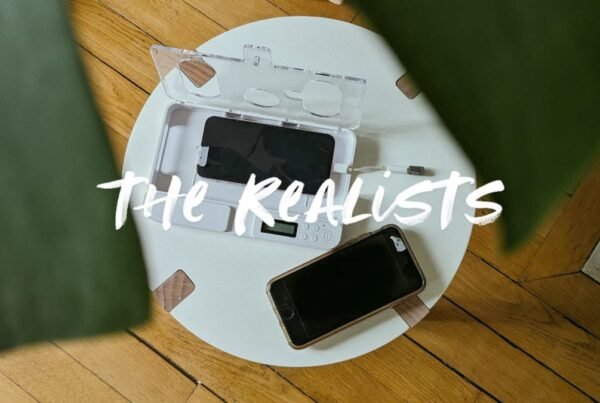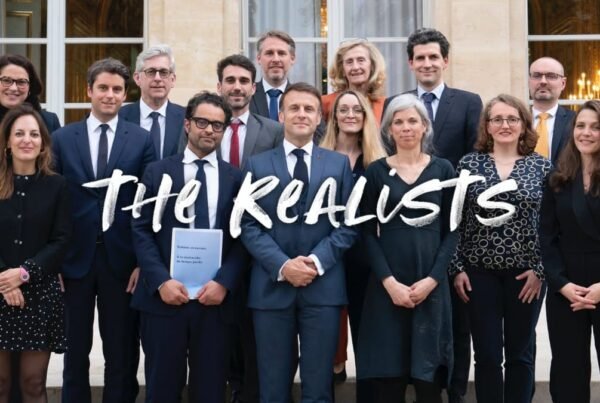For the past few weeks I’ve been grappling with a problem: how to describe The Realists to someone not familiar with my work or this project. Initially – and its website still reflects this – I was focusing on the issues of erosion of privacy and the rise of surveillance capitalism in online advertising. Yes, these topics are part of it, but not the real heart of the documentary. And then it hit me. The simplest way to describe The Realists is this: how technology is changing our humanity.
My interview with photographer and (unwitting) Instagram influencer Sara Melotti addressed this. We spoke of unrealistic life standards promoted by social media.
Melotti said:
Today people are under a lot of pressure to be perfect because the idea everybody’s putting out there is… everything is perfect. Because on social media you only present a curated image of yourself and your life, you only present the best moments of your life, the highlights of your life, you don’t show when you’re sad or when you’re fighting with somebody, you only show yourself happy and everything is good, everything is great. Everybody’s doing that, not just influencers, like regular people are doing that too. […] So the collective idea that is going around that is getting ingrained into our consciousness is that you have to be perfect. You have to be happy, you have to be cool. And we’re not perfect, we’re not always happy. Happiness is a very relative term, is something that you can achieve for maybe a moment and then it’s gone. We shouldn’t aspire to always be happy, always be perfect because we are not perfect, we are humans. And I think the world is forgetting how to be human lately.
I’d venture to say that the big philosophical dilemma of our current age is: what happens when everybody lies?
In the spring of 2019 I had the opportunity to attend a live taping of The Happier Hour – a philosophy applied to real life show with illustrious guests, hosted by my friend Monica McCarthy. That day the theme of the show was “Designing Your Life With Debbie Millman and Jacques Derrida.”
Here is an excerpt of what the great Debbie Millman (of Design Matters) said (note: some sentences have been condensed for brevity and clarity).
So if everybody lies, you can’t trust anyone. And then what is the purpose? I don’t know, I was thinking, we are in that place right now. On Instagram.
So what are we doing on Instagram? Now, we’re manufacturing our lives in a way that only portrays our souls or persons as we want them to be perceived. And so what are we seeing? And what is true? And is there any truth to the way we’re showing up in this environment? And I think that that’s really scary. And what does then happen? When we all lie? Who can be believed? What can you trust? What can you rely on when you’re looking at a person’s life and all you’re seeing is basically a lie of omission? Because there it’s not an act of lying necessarily. But it’s really, “I’m only going to show you what I want you to know about me.” And therefore it’s only fake.
I went through a hard time when my dad died in 2015. And I wasn’t doing very well with the whole situation. And I’ve met a friend that I hadn’t seen in a while and she asked me how I was and I said, “Oh, you know.” I think I might have just like instantly started crying. And she said, “Wow, you seemed fine on Facebook.” And I’m like, “Everybody’s fine on Facebook.” And then I decided this is what we need: Shamebook. We need a place where we can just go and post all the things we’re ashamed of in our lives.
The way social media platforms have been designed, well, they have metrics front and center, making users hyper aware of the numbers of likes, comments, followers they have. That’s where lies come in.
In my interview with artist / researcher Ben Grosser, he said:
Visible metrics are perhaps the most effective way to activate users to pay attention to these platforms. I think this comes from… if we think about our evolutionarily developed needs as humans and we go back to the need for esteem. […] To survive we’ve learned we need to feel valued, whether it’s by ourselves or by others.
The way social media platform are designed, they drive users to desire to accrue likes and followers and comments. The easiest way to do so? By posting the “highlight reel” of our lives. Happy moments. Babies and pets and engagements and work promotions are always sure hits.
We have been trained for years – since the introduction of likes – to self-censor ourselves and only post content that we deem may be attractive to an invisible audience of our peers. Our online lives have become performative. It’s as if we are looking at ourselves through the eyes of a virtual audience and judging our experiences based on the feedback they receive online. Even before we post anything!
Ben Grosser added:
The fact that these numbers are there, they’re influencing us in ways that we have a lot of trouble perceiving, and it’s changing what we do. It’s changing what we pay attention to. It’s changing who we pay attention to. It’s changing who we think we should be friends with. And it’s changing what we write and what we say and what we think we should write and say within the social media platforms.
The irony in all this is that this social experiment is ultimately making a handful of technology platforms earn billions of dollars – on users’ free work. Our attention, our eyeballs, are a prized commodity.
In his latest blog post titled “WMDs” (Weapons of Mass Distraction) NYU business professor Scott Galloway writes:
We become what we pay attention to. So we are becoming celebrities people are addicted to … but don’t really care about.
When discussing these issues with friends and colleagues, I have heard too many times “The genie is out of the bottle.” There is a sense of inevitability when it comes to these profound changes to our humanity and how we interact with each other. Except… our every interaction should be seen as a deliberate choice. We get to decide how we communicate with others. We are responsible for our actions. We obfuscate details and paint a rosier picture of our lives in order to get likes on social media? It’s on us. We decide where we put our attention and we decide how we present ourselves to others. It’s our choice and one of the few things we can control.
If you lament how “fake” and hyper-idealized Instagram looks, maybe unfollow accounts that you find too performative? You think unfollowing is too brutal? Mute them. Or better yet, don’t use Instagram. I deactivated my account four years ago and never looked back. Ditto for Facebook.
How do I socialize? The old way, pre-social media, by picking up the phone to talk to friends or seeing them in real life. Remember, this was the standard way of doing things till the early-mid 2000s. When you put it in perspective and you think about the entire history of humanity, it was a really short time ago.
Certain internet behaviors are being presented to us as if they are inevitable, unavoidable. But they aren’t. Everything is a choice. We have agency in this.
The realist’s way may not be glamorous or give quick dopamine hits, but in the long run, it’s a pretty serene way of living life. This one precious life we have.



